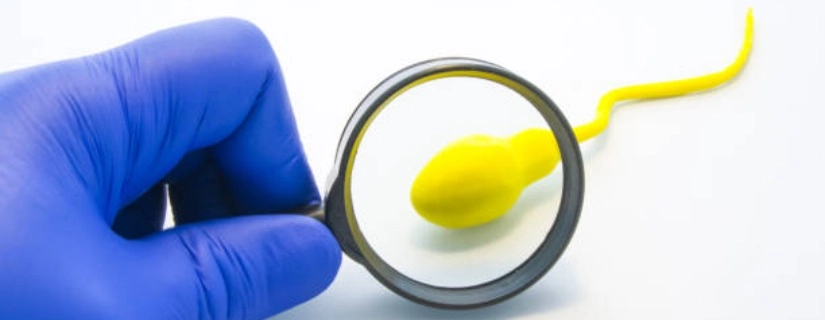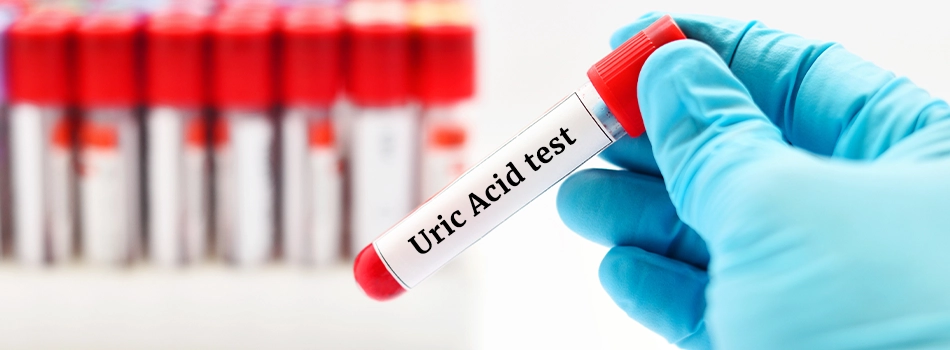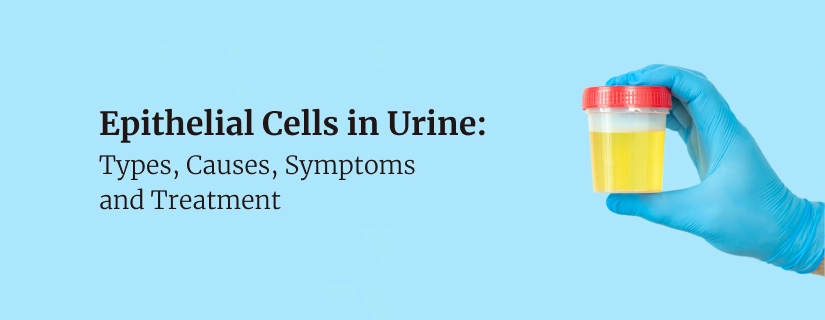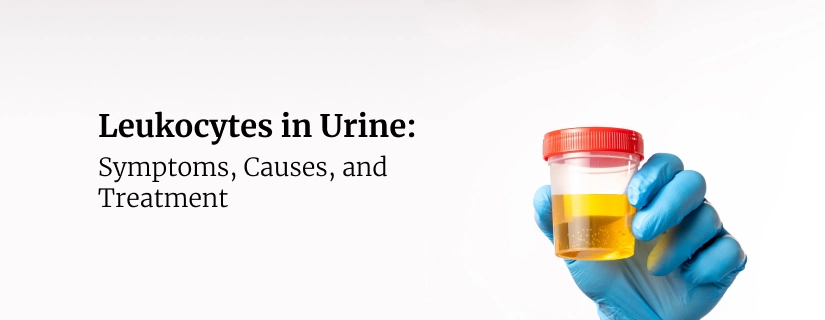-
Doctors
-
Specialities & Treatments
Centre of Excellence
Specialties
Treatments and Procedures
Hospitals & Directions HyderabadCARE Hospitals, Banjara Hills CARE Outpatient Centre, Banjara Hills CARE Hospitals, HITEC City CARE Hospitals, Nampally Gurunanak CARE Hospitals, Musheerabad CARE Hospitals Outpatient Centre, HITEC City CARE Hospitals, Malakpet
HyderabadCARE Hospitals, Banjara Hills CARE Outpatient Centre, Banjara Hills CARE Hospitals, HITEC City CARE Hospitals, Nampally Gurunanak CARE Hospitals, Musheerabad CARE Hospitals Outpatient Centre, HITEC City CARE Hospitals, Malakpet Raipur
Raipur
 Bhubaneswar
Bhubaneswar Visakhapatnam
Visakhapatnam
 Nagpur
Nagpur
 Indore
Indore
 Chh. Sambhajinagar
Chh. SambhajinagarClinics & Medical Centers
Book an AppointmentContact Us
Online Lab Reports
Book an Appointment
Consult Super-Specialist Doctors at CARE Hospitals
How to Increase Sperm Count: 12 Ways To Do
Updated on 1 February 2024

Embarking on the journey to parenthood is an exciting chapter in life, and understanding the factors that influence sperm health is a crucial aspect of this process. Sperm, those tiny contributors to new life, are influenced by various elements, ranging from lifestyle choices to environmental factors. In this article, we'll explore simple yet effective ways to boost sperm count naturally, providing practical insights for those aiming to optimize their reproductive health.
What Determines Sperm Health?
Sperm health is influenced by several factors, such as:
- Temperature:
- Sperm is sensitive to temperature.
- Testicles are located outside the body because sperm needs to be cooler than body temperature.
- Avoid hot baths, saunas, or tight underwear that can increase testicle temperature.
- Nutrition:
- Eating a balanced diet supports overall health, including sperm health.
- Nutrients like zinc, vitamin C, and folic acid are important for sperm production.
- Drinking enough water is crucial to prevent dehydration.
- Exercise:
- Regular physical activity promotes general well-being, including reproductive health.
- However, excessive intense exercise can impact sperm production, so moderation is key.
- Avoiding Harmful Substances:
- Tobacco and recreational drugs can harm sperm.
- Limit alcohol intake, as excessive alcohol can affect sperm quality.
- Stress Management:
- Chronic stress may impact reproductive health.
- Relaxation techniques, exercise, and sufficient sleep help manage stress.
- Weight Management:
- Maintaining a healthy weight is crucial.
- Both underweight and overweight conditions can impact sperm production.
- Avoiding Toxins:
- Exposure to environmental toxins, pesticides, and certain chemicals can harm sperm.
- Use protective measures when working with harmful substances.
- Sexual Health:
- Regular sexual activity supports sperm health.
- Practise safe sex to prevent sexually transmitted infections that can affect fertility.
- Hygiene:
- Good personal hygiene prevents infections that could harm reproductive organs.
- Avoid hot tubs or hot baths that may affect sperm.
- Regular Check-ups:
- Regular medical check-ups can identify and address potential issues early.
- Consult a healthcare professional if there are concerns about fertility.
It is always suggested to consult a urologist if you are facing difficulties in fertility.
What not to do to maintain sperm health?
To maintain sperm health, there are several things you should avoid:
- Smoking: Cigarette smoking can reduce sperm count and motility and cause DNA damage to sperm.
- Excessive Alcohol Consumption: Drinking too much alcohol can lower testosterone levels, affect sperm production, and lead to abnormal sperm shape.
- Poor Diet: Eating too much junk food or not getting enough nutrients can decrease sperm quality.
- Stress: High-stress levels can interfere with the hormones needed for sperm production.
- Tight Clothing: Wearing tight underwear or pants can increase the temperature around the testicles, potentially affecting sperm health.
- Exposure to Toxins: Avoid exposure to chemicals, pesticides, and heavy metals, as they can damage sperm production and function.
- Stay away from heat: Avoid hot tubs or placing laptops on your lap for long periods, as heat affects sperm.
What Causes Male Fertility Problems?
Here are some factors that can contribute to male fertility problems:
- Low Sperm Count: Having too few sperm can make it harder to start a family.
- Lazy Swimmers (Poor Motility): If sperm are slow swimmers, reaching the egg becomes a slow dance.
- Oddly Shaped Sperm (Abnormal Morphology): Sperm with unusual shapes might struggle in the reproduction relay.
- Erection Hiccups (Erectile Dysfunction): Difficulty getting or keeping things up can affect the baby-making process.
- Testicle Troubles: Issues with the baby-making factory (testicles) can impact the production line.
How to Increase Sperm Count: 12 Ways to Do
Here are the top 12 ways to increase sperm count naturally:
- Optimal Nutrition: Maintain a nutrient-rich diet with a focus on fruits, vegetables, and whole grains to support healthy sperm production.
- Regular Exercise: Incorporate regular physical activity to promote overall well-being and contribute to a higher sperm count.
- Temperature Management: Choose breathable underwear and avoid prolonged exposure to excessive heat to create an ideal environment for sperm health.
- Stress Reduction: Implement stress management techniques, such as meditation or yoga to mitigate potential negative impacts on sperm count.
- Weight Maintenance: Manage a healthy weight, as both overweight and underweight conditions can influence sperm production.
- Avoid Smoking: Quit smoking to eliminate potential harmful effects on overall health and sperm quality.
- Moderate Alcohol Consumption: Limit alcohol intake to moderate levels, as excessive alcohol can adversely affect sperm parameters.
- Adequate Sleep: Prioritise sufficient sleep to optimise hormonal balance and support the body's natural processes, including sperm production.
- Hydration Importance: Ensure proper hydration, as it is fundamental for overall physiological functions, including reproductive health.
- Avoid Harmful Exposures: Minimise exposure to environmental toxins and harmful chemicals to safeguard sperm quality.
- Supplement Consideration: Explore appropriate supplements like zinc, folic acid, and antioxidants under professional guidance to enhance sperm health.
- Strategic Intimacy Practices: Maintain a balanced approach to intimacy, fostering regular connections while avoiding overly exhaustive sessions to sustain optimal sperm vitality.
Treatment
For men with extremely low sperm counts or additional health concerns, a doctor might recommend medication to help. Common treatments include:
- Serophene (Clomiphene): This is usually used for female infertility but is sometimes prescribed to men.
- Gonal-F RFF Redi-ject (follitropin alfa): A medication that helps stimulate sperm production.
- Antibiotics: If a low sperm count is due to an infection in the urinary or reproductive tract, antibiotics can be used to treat it.
- Human Chorionic Gonadotrophin (Choragon or Pregnyl): This hormone helps improve sperm production.
- Letrozole or Anastrozole: These are often used to regulate hormones that affect sperm count.
- Exogenous Androgens: These synthetic hormones may be prescribed to balance testosterone levels.
Supplements to increase sperm count
More research is needed, but the following supplements might help increase sperm count and improve male fertility:
- D-Aspartic Acid (D-AA): This amino acid may be linked to low sperm count, as men with fertility problems often have lower levels of it. Taking D-AA as a supplement can boost testosterone, which might help if hormonal issues are causing low sperm count or motility problems.
- Vitamin C: As a strong antioxidant, vitamin C protects cells from damage caused by oxidative stress, which can lead to issues like heart disease and even infertility. One study showed that taking 2,000 mg of vitamin C daily for two months increased sperm motility by 90%, doubled sperm count, and reduced damaged sperm by over half.
- Vitamin D: People with low vitamin D levels are more likely to have low testosterone, which can lead to a lower sperm count. One study found that taking vitamin D for a year significantly raised testosterone levels.
- Fenugreek: A study showed that Testofen, a supplement made from fenugreek extract, boosted testosterone levels, sexual function, and sexual activity. This may help with low sperm count and motility due to hormonal issues.
- Zinc: Zinc supplements have been shown to raise both sperm count and testosterone levels, especially in those who are deficient. However, too much zinc could harm sperm, so more research is needed to find the right dosage.
- Ashwagandha: In one study, men who took ashwagandha daily for three months saw a 150% increase in sperm count and a 50% improvement in motility.
- Maca Root: Preliminary research suggests that taking maca root powder daily for four months can improve sperm count and motility, but more studies are needed to confirm this.
When to See a Doctor?
If you've been actively trying to conceive for about a year without success and suspect a low sperm count, it's advisable to consult a healthcare professional. Additionally, seek medical advice sooner if:
- Age Concerns: If you're over 35, consider consulting a doctor after six months of unsuccessful attempts, as fertility can decline with age.
- Previous Health Issues: If you have a history of testicular problems, surgeries, or other health issues that might affect fertility, it's wise to seek guidance earlier.
- Lifestyle Factors Persist: If you've made positive lifestyle changes but still face challenges, a doctor can provide tailored advice and explore potential underlying issues.
- Recurrent Miscarriages: If your partner experiences recurrent miscarriages, it could be an indication of sperm-related issues, warranting a medical evaluation.
- Known Risk Factors: If you're exposed to environmental hazards, chemicals, or have a family history of fertility issues, consult a healthcare professional promptly.
- Concerns About Erectile Function: If you're experiencing difficulties with erections or other sexual functions, it's essential to address these concerns with a doctor.
Remember, seeking timely medical advice can help identify and address potential fertility issues, offering the best chance for successful conception.
Conclusion
Simple adjustments in lifestyle, such as maintaining a balanced diet and managing stress, can have a profound impact. Remember, the path to parenthood is unique for each individual or couple, and seeking professional guidance when needed is a wise decision. By incorporating these straightforward strategies and staying attuned to your body, you are taking positive steps towards enhancing your chances of successful conception. May your journey to parenthood be filled with joy and fulfilment.
FAQs
1. What foods build more sperm?
Foods like eggs, spinach, bananas, dark chocolate, walnuts, and citrus fruits are known to improve sperm count and quality. These foods contain nutrients like zinc, folate, and antioxidants, which are essential for sperm health.
2. What factors can affect sperm count?
Factors like smoking, excessive alcohol consumption, stress, poor diet, lack of exercise, obesity, and exposure to environmental toxins (like chemicals or radiation) can lower sperm count. Certain medical conditions, like infections or hormonal imbalances, also affect sperm production.
3. Will consuming dietary supplements improve sperm count and fertility?
Yes, some dietary supplements, like zinc, folic acid, vitamin C, vitamin D, and omega-3 fatty acids, may improve sperm count and fertility. However, it’s best to consult a doctor before starting supplements to ensure they are right for you.
4. What drink can increase sperm?
Drinks rich in antioxidants, like green tea, pomegranate juice, or smoothies made with berries and leafy greens, may help improve sperm quality. Staying hydrated by drinking plenty of water also supports overall reproductive health.
5. How to check sperm count at home?
Home sperm test kits are available that can measure sperm count. These kits usually involve collecting a semen sample and testing it with a device to assess sperm concentration. However, for a detailed analysis, it's best to visit a doctor or fertility clinic.
6. How do I know my sperm is healthy?
Healthy sperm are usually indicated by a normal sperm count, good motility (movement), and proper shape. If you're concerned about fertility, a semen analysis by a healthcare provider can provide more detailed information about sperm health.
7. How much sperm is produced in 24 hours?
Men produce millions of sperm each day. On average, the body can produce around 100-200 million sperm per day, but the exact number can vary depending on individual factors.

ENQUIRY FORM
SELECT CATEGORIES
-
Neurosciences (16)
-
Neurology (37)
-
Neurosurgery (14)
-
Orthopaedics (48)
-
Oncology (33)
-
Obstetrics and gynecology (52)
-
Pulmonology (23)
-
Urology (20)
-
Nephrology (13)
-
Psychiatry (7)
-
Dietetics and Nutrition (111)
-
General Medicine (63)
-
Cardiac Sciences (32)
-
Vascular & Endovascular Surgery and Interventional Radiology (15)
-
Gastroenterology (46)
-
Endocrinology (23)
-
Plastic Surgery (10)
-
Critical Care Medicine (5)
-
COVID-19 (16)
-
Dermatology (16)
-
Emergency Care (1)
-
Ophthalmology (4)
-
Pediatrics (14)
-
Laparoscopic and Bariatric Surgery (8)
-
ENT (15)
-
Kidney Transplant (1)
-
Liver Transplantation and Hepatobiliary Surgery (5)
-
General Surgery (3)
-
Internal Medicine (5)
-
Medicine Information
Blood in Urine (Hematuria): Symptoms, Causes, Diagnosis, Prevention and Treatment
Urinary Retention: Symptoms, Causes, Diagnosis and Treatment
YOU MAY ALSO LIKE
RECENT BLOGS
-

Preterm Birth (Premature Birth): Symptoms, Causes, Treatment and Prevention
13 May 2025
Read More
-

Rotablation Angioplasty: Benefits, Treatments, And Recovery Time
9 May 2025
Read More
-

What Is The Difference Between IUI and IVF?
9 May 2025
Read More
-

Venous Malformations: Causes, Symptoms, and Treatment
30 April 2025
Read More
-

Varicose Vein Foam Sclerotherapy: Treatment, Benefits, and Procedure
30 April 2025
Read More
-

Radiofrequency (RF) Ablation Treatment for Varicose Veins: Know More
30 April 2025
Read More
-

Varicose Vein Sclerotherapy: Treatment, Benefits, and Procedure
30 April 2025
Read More
-

Varicose Vein Endovenous Laser Ablation: Procedure, Benefits, Risks
30 April 2025
Read More
Have a Question?
If you cannot find answers to your queries, please fill out the enquiry form or call the number below. We will contact you shortly.


















